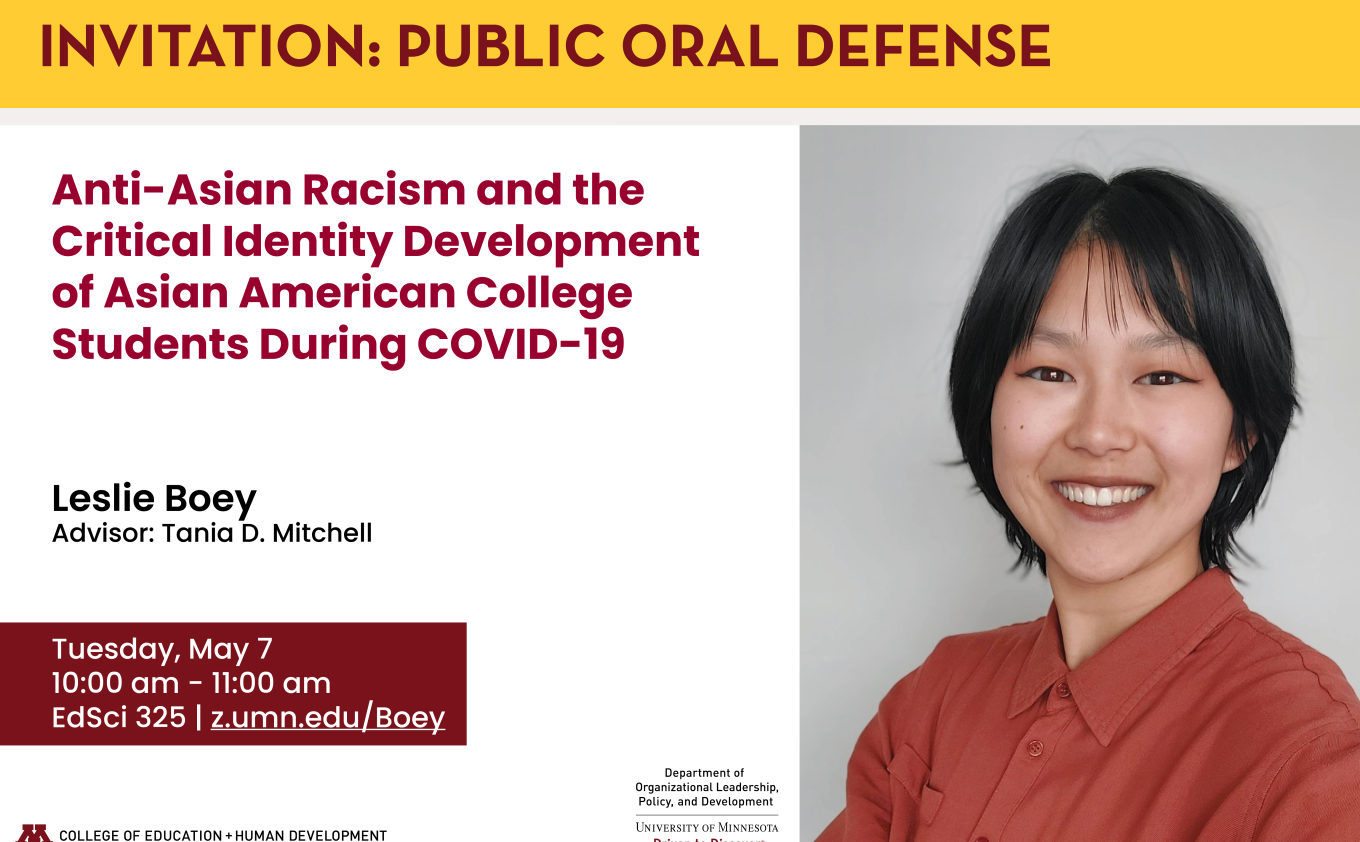Events
Public Oral Defense: Leslie Boey

Anti-Asian Racism and the Critical Identity Development of Asian American College Students During COVID-19
Advisor: Tania D. Mitchell
This dissertation explores the racial identities of Asian American college students during a time of heightened anti-Asian racism amidst the COVID-19 pandemic. In the early 2020s, political leaders blamed China for the global health crisis, resulting in a spike of anti-Asian violence and the need to investigate Asian American experiences with racism. Using critical narrative inquiry, this study explored how Asian American college students understood their racial identities amidst these conditions. Students’ lived experiences are retold as short stories, revealing how they negotiated race and identity through major social events. The findings indicate that language, hypervisibility, race-based education, social relationships, and cross-racial dynamics shaped Asian American college students’ racial identities. This research affirms the need to deeply recognize Asian Americans’ racial experiences, which are often sidelined in the fight for racial justice. This study offers practical recommendations for researchers, professionals, students, and non-academics alike to embrace the power of storytelling and work to make Asian Americans visible in the conversation on race.
Education Sciences Building 325 or Online via Zoom
Photographs taken at the event may be used in University of Minnesota print and online publications, promotions, or shared with the CEHD community.
The University of Minnesota shall provide equal access to and opportunity in its programs, facilities, and employment without regard to race, color, creed, religion, national origin, gender, age, marital status, familial status, disability, public assistance status, membership or activity in a local commission created for the purpose of dealing with discrimination, veteran status, sexual orientation, gender identity, or gender expression. All are welcome.
The University of Minnesota campuses were built on the traditional homelands of the Dakota and Ojibwe, and scores of other Indigenous peoples who have walked on these lands from time immemorial. It is important to acknowledge the peoples on whose land we live, learn, and work as we seek to improve and strengthen our relations with our tribal nations. We also acknowledge that words are not enough. We must ensure that our institution provides support, resources, and programs that increase access to all aspects of higher education for our American Indian students, staff, faculty, and community members.